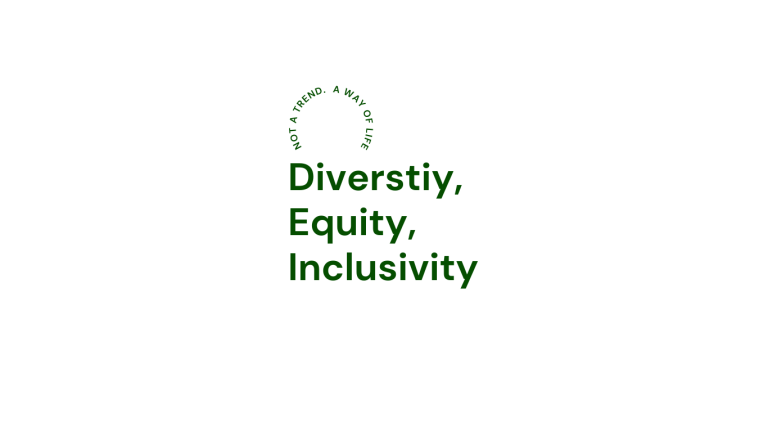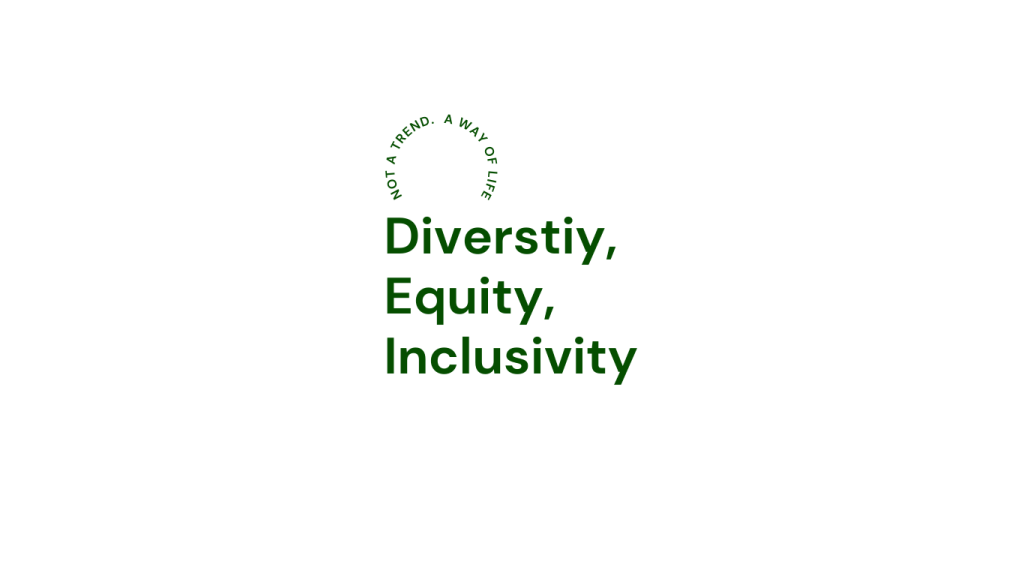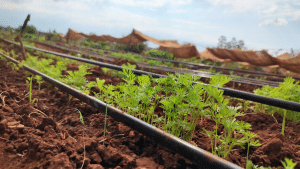
How can we truly advocate for positive change if our own organisations don’t reflect the diversity of the communities we serve? Prioritising Diversity, Equity, and Inclusion (DE&I) isn’t just a box to tick – it’s a fundamental step towards achieving impactful, sustainable social change.
Understanding Diversity and Inclusion
Diversity and inclusion are often used interchangeably but hold distinct meanings. Diversity encompasses the range of human differences, including but not limited to race, ethnicity, gender, sexual orientation, socio-economic status, age, physical abilities, religious beliefs, and political ideologies. Inclusion, on the other hand, refers to the practice of creating environments where individuals feel valued, respected, and empowered to contribute their unique perspectives and talents.
Within the organisational context, diversity and inclusion are imperative for fostering innovation, enhancing decision-making processes, and ensuring equitable opportunities for all members. By embracing diversity and fostering inclusive environments, NGOs can leverage the richness of varied experiences and perspectives to drive meaningful change and better serve their constituents.
Why DE&I Matters
Imagine an environmental NGO solely composed of urban professionals. They might miss crucial perspectives from rural communities most affected by climate change. Or, a youth’s rights organisation lacking ethnic diversity might struggle to understand the specific needs of marginalised groups.
A diverse team brings a wealth of experiences and viewpoints to the table. This fosters:
Enhanced decision-making: Diverse perspectives lead to richer discussions and more innovative solutions. When a team reflects the community, they’re better equipped to understand complex challenges and develop programs that truly address local needs. Diverse perspectives lead to a more nuanced understanding of problems, and ultimately, more impactful solutions.
Increased credibility: Donors and beneficiaries alike are looking for NGOs that walk the walk when it comes to social justice. A diverse and inclusive organisation inspires trust and demonstrates a genuine commitment to the communities it serves.
Innovation and creativity: When people with different backgrounds come together, new ideas and approaches naturally emerge.
Improved program effectiveness: Culturally competent programs designed with diverse voices in mind are more likely to be relevant and resonate with the target audience. This translates to greater impact and lasting positive change.
Making DE&I a Reality: Practical Steps
DE&I isn’t a one-time fix; it’s a continuous journey. Here are some actionable steps NGOs can take:
1. Assessing the Current Situation
Before embarking on any diversity and inclusion initiatives, NGOs must first assess their current state. This involves conducting a comprehensive evaluation of existing policies, practices, and culture to identify areas for improvement. Gathering data on demographics and representation within the organisation can provide valuable insights into the extent of diversity and inclusivity.
2. Setting Clear Objectives
Once the current situation has been assessed, NGOs should set clear objectives for their diversity and inclusion efforts. These objectives should be aligned with the organisation’s mission and values, reflecting a commitment to equity and social justice. Establishing measurable goals ensures accountability and provides a roadmap for progress.
3. Creating Inclusive Policies and Practices
Creating inclusive policies and practices is essential for attracting, retaining, and advancing diverse talent within NGOs. This includes reviewing recruitment and hiring processes to mitigate bias and promote diversity, as well as implementing training and development programs to foster cultural competence and awareness among staff.
4. Fostering Inclusive Leadership
Leadership plays a pivotal role in driving diversity and inclusion within NGOs. It is incumbent upon organisational leaders to champion inclusivity, lead by example, and hold themselves accountable for creating equitable and respectful workplaces. Developing leadership competencies for inclusivity, such as active listening, empathy, and cultural humility, can further enhance the effectiveness of diversity and inclusion efforts.
5. Building a Diverse Network
By fostering partnerships with individuals and organisations from varied backgrounds, NGOs can amplify their impact and expand their reach, ultimately driving positive social change.
6. Fostering a Culture of Belonging
Promoting equity and fairness requires proactive measures to address bias and discrimination within organisational structures and practices. This includes implementing policies and procedures that ensure equal opportunities for all individuals, regardless of their background or identity.
Create a welcoming environment where everyone feels valued. Provide unconscious bias training for staff and leadership.
Promote open communication and encourage diverse voices to be heard.
7. Measuring Progress and Impact
Measuring progress and impact is essential for assessing the effectiveness of diversity and inclusion initiatives. Establishing key performance indicators (KPIs) allows NGOs to track their progress towards established goals and identify areas for improvement. Regular monitoring and evaluation enable organisations to course-correct and adapt their strategies based on feedback and learnings.
8. Celebrating Diversity and Inclusion
Celebrating diversity and inclusion is essential for fostering a culture of belonging and appreciation. Recognising achievements and milestones reinforces the value of diversity and inclusion and motivates continued efforts towards equity and social justice. By celebrating diversity and inclusion, NGOs can create vibrant and inclusive communities where everyone feels valued and respected.
Conclusion
In conclusion, prioritising diversity and inclusion is imperative for NGOs seeking to drive positive social change and create equitable communities. By understanding the importance of diversity and inclusion, setting clear objectives, and implementing inclusive policies and practices, NGOs can foster environments where everyone feels valued, respected, and empowered to contribute their unique perspectives and talents.
Sustaining a long-term commitment to diversity and inclusion requires embedding these principles into the fabric of organisational culture. Continuously improving and evolving practices ensures that NGOs remain at the forefront of diversity and inclusion efforts, driving lasting impact and transformative change.
Together, let’s champion diversity and inclusion, ensuring NGOs remain powerful engines for positive change in our world.







